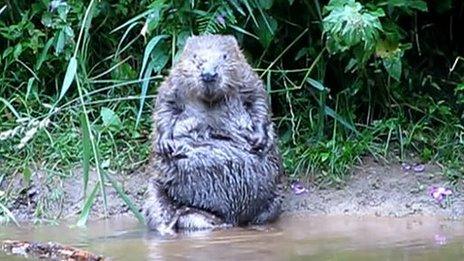Opinions sought over beaver reintroduction in Wales
- Published
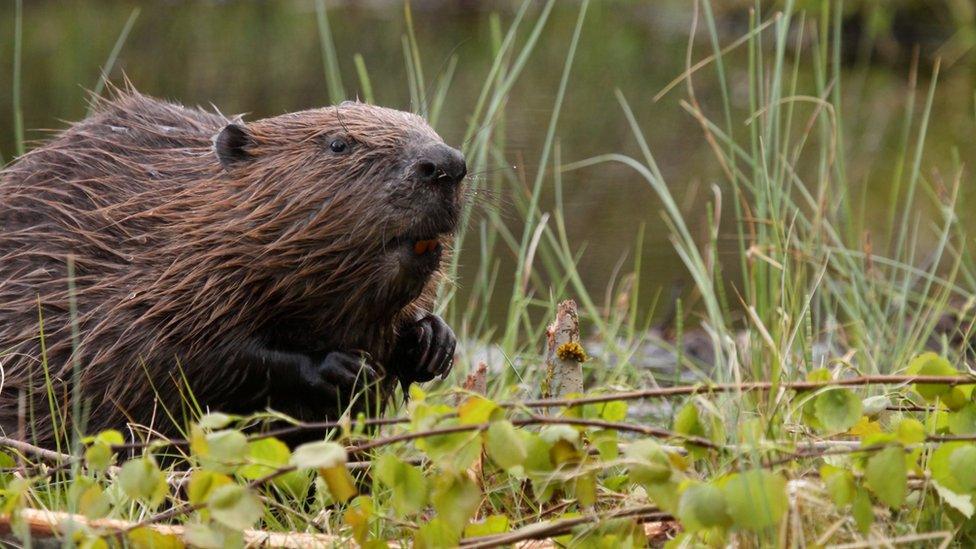
Beavers have been reintroduced in Scotland and England
Members of the public will be asked to have their say on plans to reintroduce beavers into the Welsh countryside.
Depending on the level of response and issues raised, a final decision could come before the end of the year.
Supporters of the plan believe they will bring environmental and economic benefits, but others remain unconvinced.
Beavers were once native to Britain but were hunted to extinction for their fur in the Middle Ages.
The animal has been reintroduced into Scotland and England in recent years and Natural Resources Wales (NRW) is currently considering an application for a licence to release ten pairs of beavers into the River Cowyn in Carmarthenshire.
The application has been submitted by Wildlife Trusts Wales and the Carmarthenshire-based Bevis Trust, which has three families of beavers penned on its land ready to be released.
'Natural filters'
Bevis Trust founder Nick Fox believes the experience of beaver reintroduction elsewhere proves that the animals will bring big benefits to the Welsh countryside.
He told BBC Radio Wales' Eye on Wales programme: "Beavers have a key role to play in the ecosystem. They build dams in the slower-flowing small rivers - not in big rivers - and those dams act as natural filters for pollutants and sediment."
The River Cowyn has been identified as suitable for a trial release of beavers as it is relatively small and self-contained, with plenty of food and scope for any population to expand.
The licence would be for five years; long enough - hope the Bevis Trust and Wildlife Trust Wales - to establish a "pioneer foothold" for the beaver in Wales.
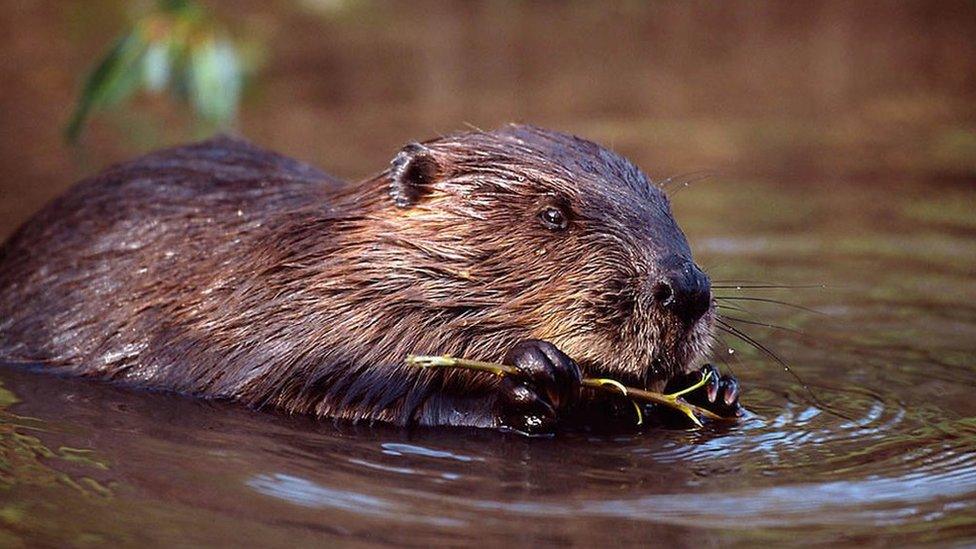
Beavers were hunted to extinction in Britain in the 16th Century
Alicia Leow-Dyke, who oversees the Welsh Beaver Project for Wildlife Trusts Wales, argued beavers would help improve biodiversity.
"Many studies have shown that where you have beavers you have a much richer biodiversity, you have a mosaic of different habitats - and that's possibly something we have lost in the United Kingdom," she added.
But Mark Lloyd, the chief executive of the Angling Trust, is not convinced that now is the right time to be considering such a project.
"There are lots of other really pressing priorities for the water environment that NRW should be focussing on rather than pet projects that are really "nice to have" but it's not clear what the benefits are," he said.
Beavers are herbivores. During the summer they will eat all manner of plants while willow is a big part of their diet during the winter. They will also fell other trees to make their dams.
Liverworts and lichens
That is a concern for botanist Ray Woods, who has visited the River Otter in Devon where beavers are now in residence under licence.
"I asked the question, "What are they eating" and they just said, "Sorry Ray, we don't know". What's been the impact on all these masses of mosses and liverworts and lichens that are absolutely bang full of useful pharmaceuticals?"
NRW has completed its initial assessment of the licence application and asked for some further information for the Bevis Trust and Wildlife Trusts Wales.
Once that has been received there will be a short consultation. Depending on the level of response and issues raised, a final decision could come before the end of the year.
Eye on Wales is on BBC Radio Wales, at 18.30 BST on Sunday, 15 October.
- Published5 July 2017
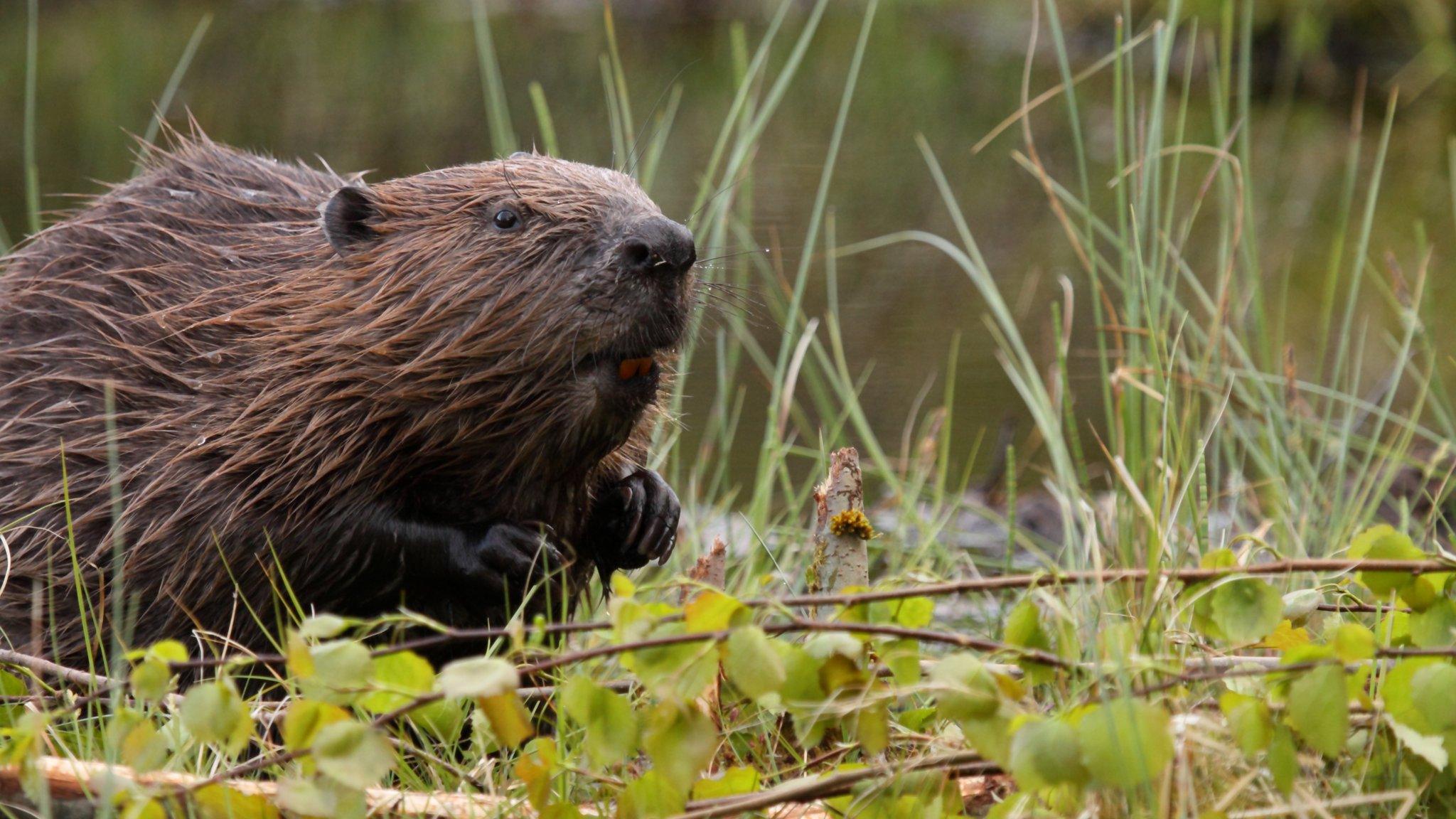
- Published3 January 2017

- Published2 January 2017

- Published24 November 2016

- Published11 October 2016
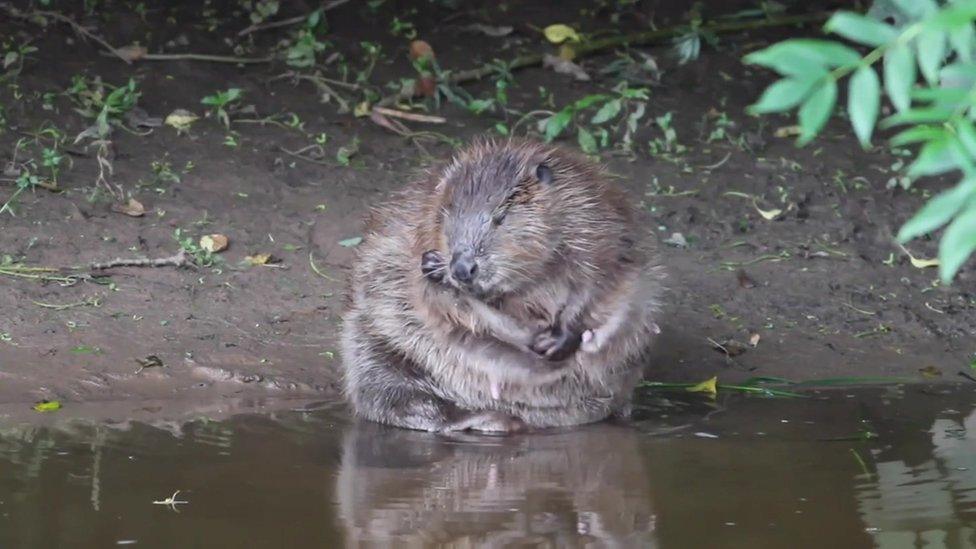
- Published19 March 2015
